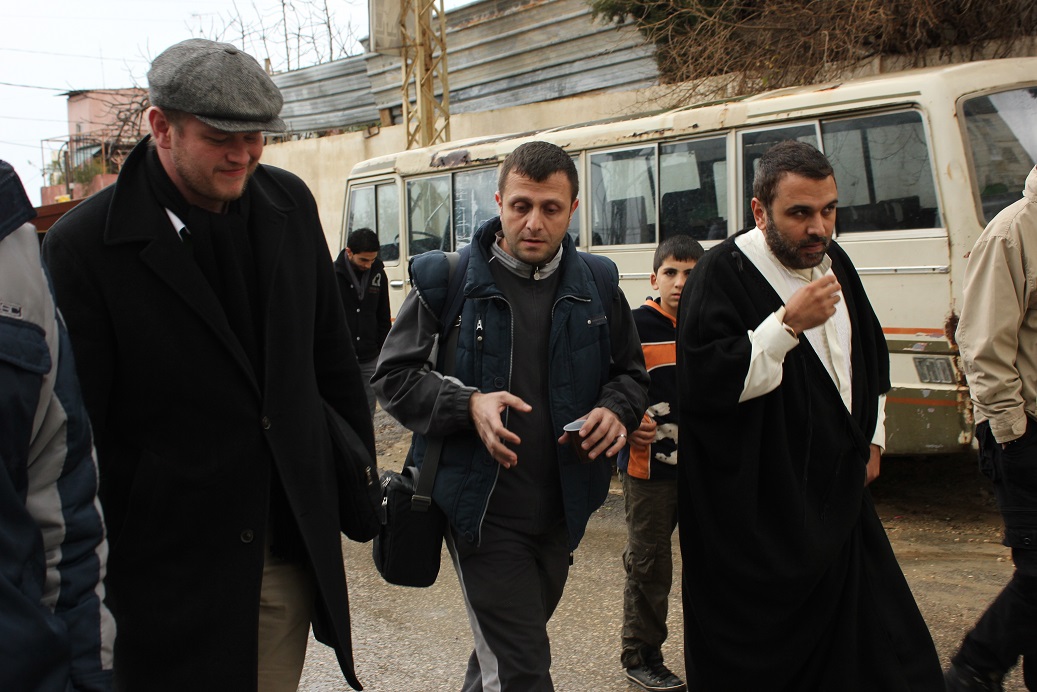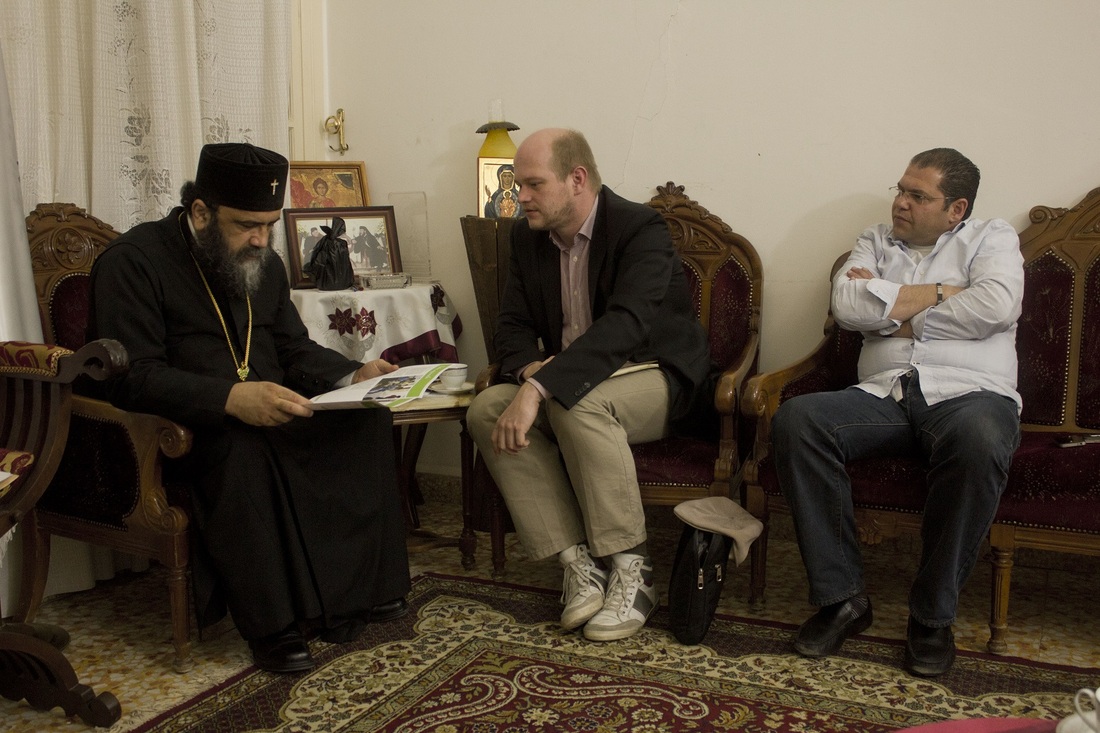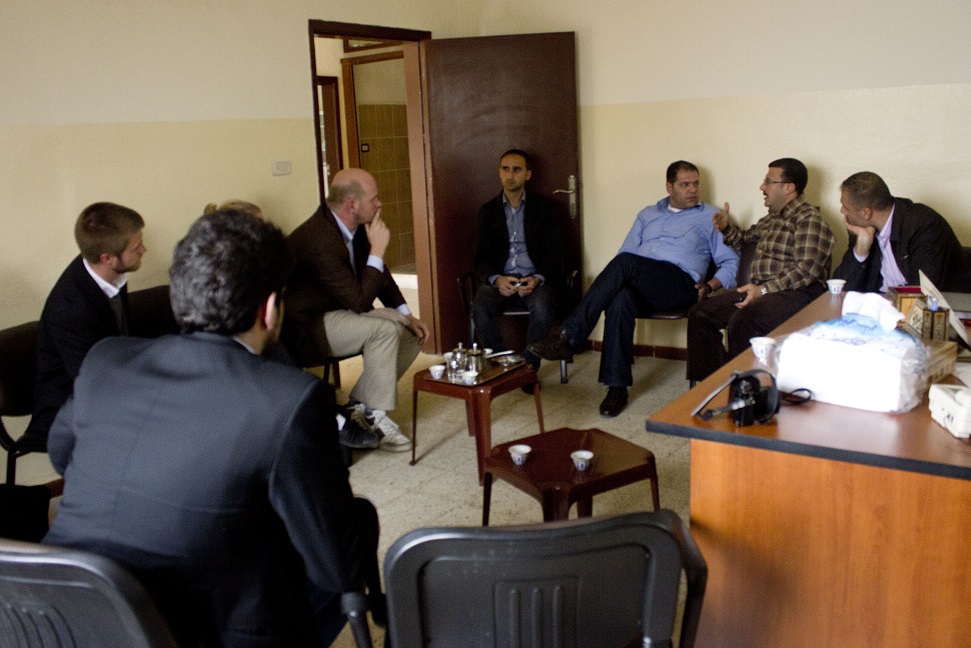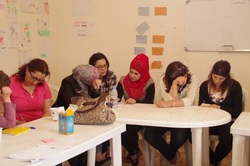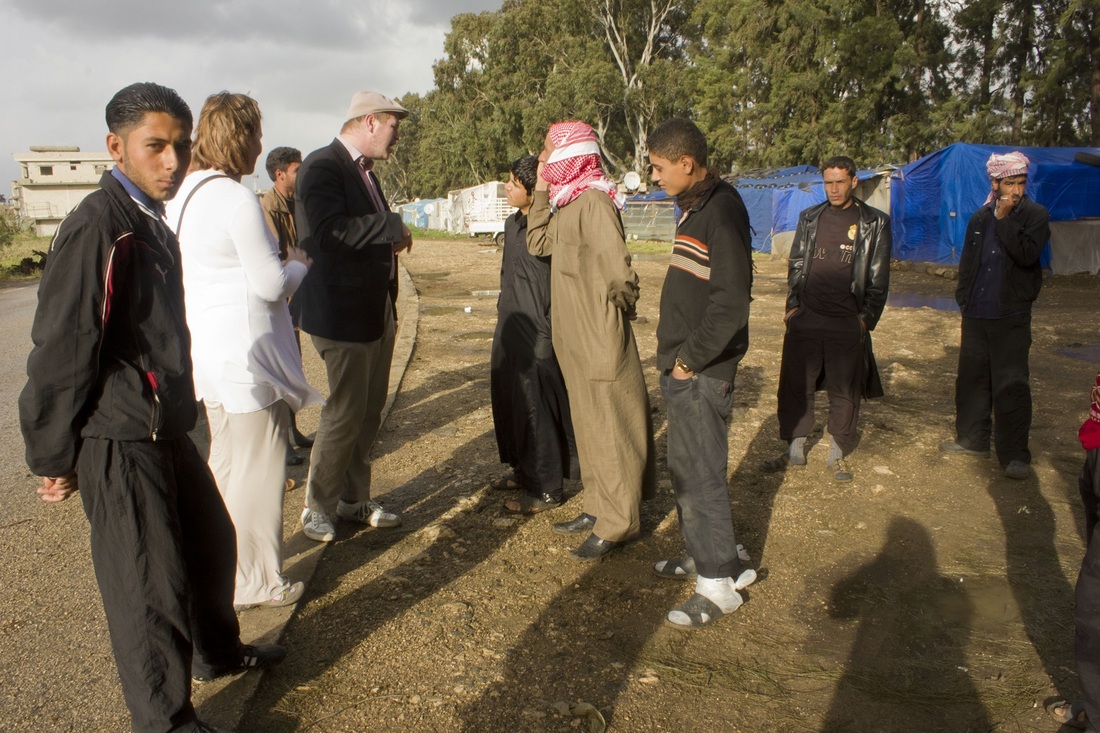A unique methodology
Based on the many years of experience shared by our members in the fields of peacebuilding, humanitarian aid and interfaith dialogue, we have developed our own methodology. We wish to combine peacebuilding with practical help by fostering cooperation and trust between different communities.
In our Peace Centres, experienced teachers, psychologists and social workers offer individual and social activities, skill training, courses and material support. Peace is the overarching objective governing our work, supported by three pillars of daily activities: psychosocial support, educational support and emergency aid. The steering committee of our Peace Centre is composed by relevant moral authorities, reflecting the various structures of Syria’s civil society. Amongst them, religious leaders of all local communities are playing a major role. All activities are decided in co-decision between us and the local Steering Committee. We underline our impartiality in the delivery of services to those in need. Our aid is impartial and not based on nationality, race, religion, or political affiliation; it is based on need alone. Neutrality does not imply ignorance or indifference. We will stay neutral in the attempt to facilitate dialogue, but we will not shy away from denouncing violations of fundamental human rights. Our work on the ground
Our first Peace Centre opened in the beginning of July 2013 in the Northern border region of Lebanon. We want to operate inside Syria as soon as access becomes possible, but the Peace Centre in Lebanon is not supposed to be limited in time.
Please read more on the following pages about the estalishment of our first Peace Centre and about our programme lines for practical help. Until now, our work is relying on individual donations alone. Please help us to continue what we have started! Please click here to make a donation! |
Cover photo: our international volunteers teaching in the informal camp school we built (Lebanon)
Meeting with a Sunni sheikh in the suburbs of Tripoli (Lebanon)
Meeting with the Greek-Orthodox Metropolitan of Akkar (Lebanon) and Wadi Nasara (Syria)
Meeting with the Alawite community in Akkar (Lebanon)
Monthly training with all our teachers at our Peace Centre in Bkarzla (Lebanon)
Meeting with Syrian refugees in an informal camp in Akkar, close to the Syrian border.
|

|
|
